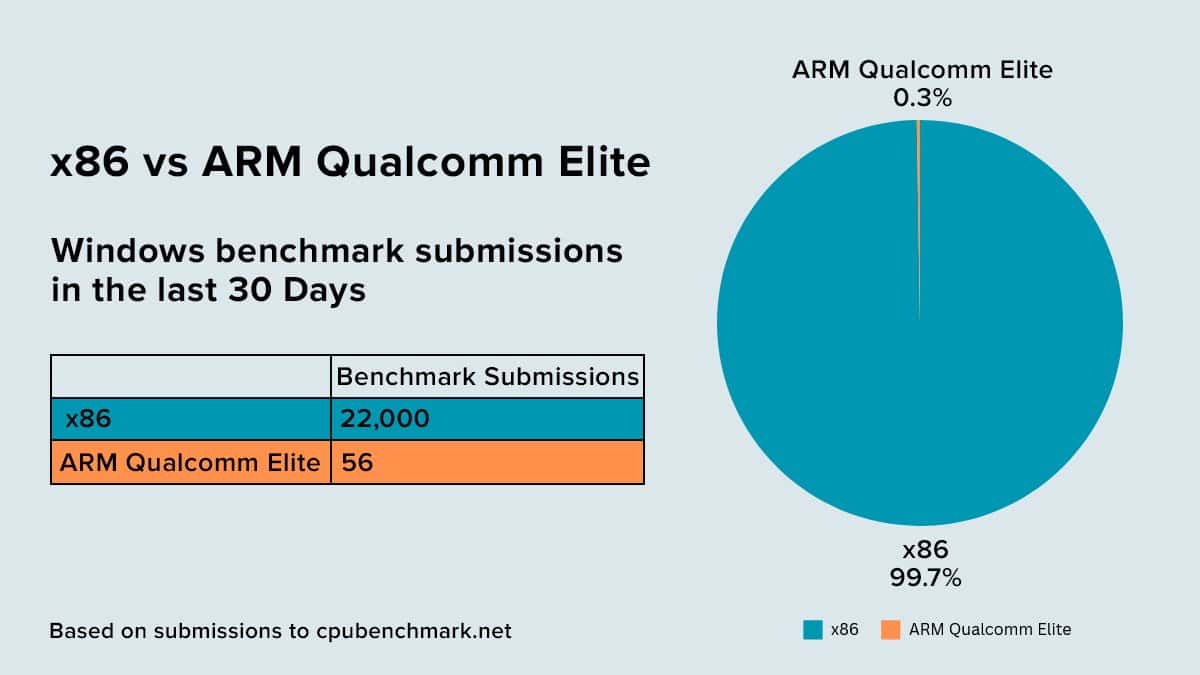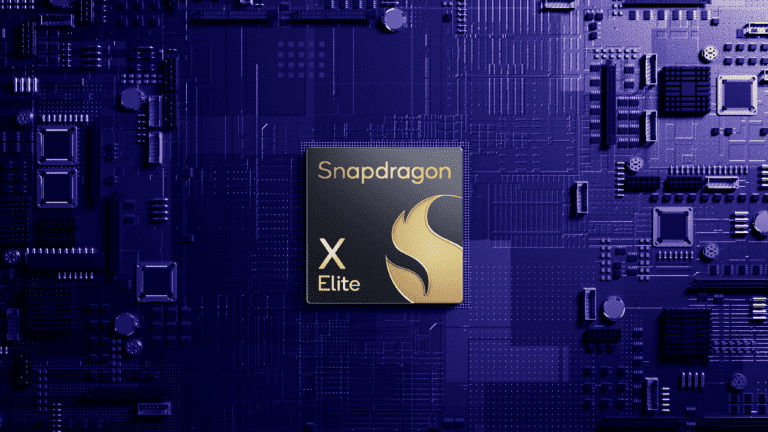Only a handful of Copilot + PCs with Qualcomm’s Snapdragon X Elite chipset have been subjected to Australian-based PassMark Software’s benchmark test by users over the past month. Only 56 devices to be precise. A stark contrast to the 22,000 Windows devices based on the time-honoured x86 architecture sent through the test during the same period.
It prompted PassMark to share this striking discrepancy on X, formerly Twitter. The company said Windows computers based on Arm architecture (in other words, Copilot+ PCs with a Qualcomm Snapdragon processor) accounted for only 0.3 percent of all benchmarks requested.
“Given Qualcomm CEO’s claim that ARM could capture 50% of the Windows PC market in 5 years, there’s a long road ahead,” the somewhat catty post read.

Don’t jump to conclusions just yet
However, it is a bit too bold to conclude that Arm-based Windows PCs would not be able to succeed. After all, the devices have only just hit the market. Moreover, benchmarks like this one are mainly used by enthusiasts who like to get the most out of their existing machines by tweaking and optimizing them. In addition, not all devices of this type of Windows PCs have reached the market yet. Especially in the mid-range segment, there is still a lack of Arm laptops running Windows with, for example, the slightly less powerful X Plus chipset.
Still, it says something about the initial enthusiasm for Arm laptops. While this is not the first time Microsoft has launched Windows devices based on Arm, it is the most serious attempt to date. The hype accompanying these devices’ introduction does not immediately translate to enthusiasm from end users. It is also worth noting that the Qualcomm dev kits arrived very late to some developers, as the German website Winfuture wrote. That doesn’t really help with a smooth launch.
Arm-compatible versions of software
There is also some ambiguity about the ability to run programs and apps built for x86 architecture that do not have an Arm variant. Although much software exists in an Arm-architecture-capable version, it is not always officially supported. In the absence of an Arm-capable version, Microsoft provides an emulator called Prism that can run x86 programs on an Arm PC without too much loss of speed. This often works fine, and certainly for frequently used programs, but not always.
An important selling point for Arm laptops running Windows is the Copilot+ label, in addition to the longer battery life that Arm provides. One has nothing to do with the other; however. Intel is coming out with the Lunar Lake chipset (i.e., x86) later this year that may as well carry the Copilot+ label. In addition, AMD is releasing the Ryzen AI 300. Both are looking to compete with Qualcomm, so this battle is not over yet.
Also read: These major computer brands have already announced their own Copilot+ pc’s
